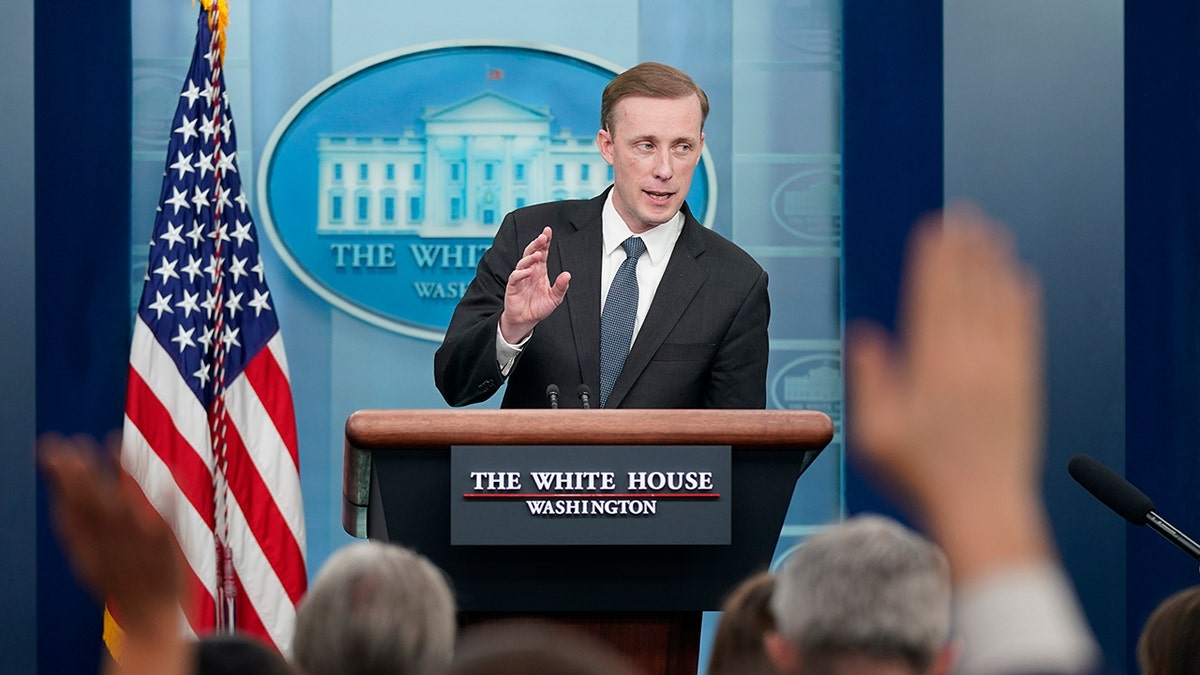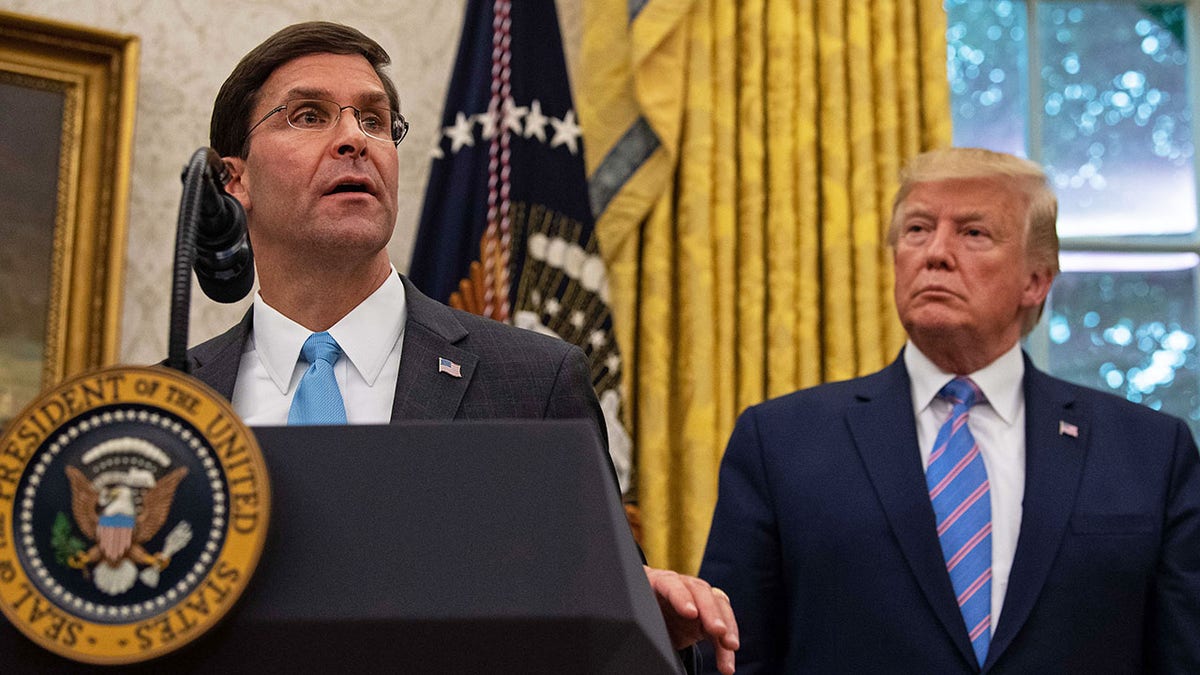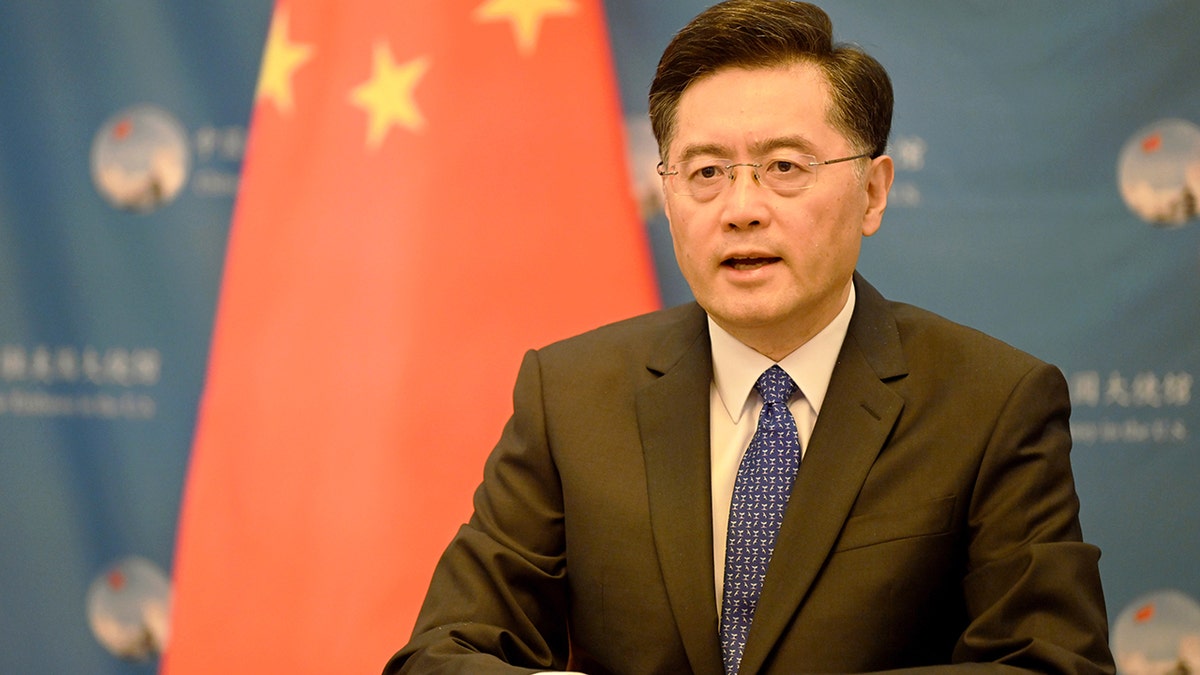Jake Sullivan on Taiwan: "We maintain the policy of strategic ambiguity."
Sullivan discussed the Russian invasion of Ukraine, China, Afghanistan and other hot spots around the globe. (Video courtesy: Aspen Security Forum.)
White House National Security Adviser Jake Sullivan told the Aspen Security Forum that U.S. policy regarding Taiwan remains "unchanged," and Washington is closely monitoring developments on the contested island nation.
"So, the president said in Japan that our policy has not changed, that we maintain a policy of strategic ambiguity, and we do. … As the president himself has said, our policy has not changed," Sullivan said.

National Security Adviser Jake Sullivan speaks during a press briefing at the White House March 22, 2022, in Washington. (AP Photo/Patrick Semansky)
Sullivan noted that the U.S. remains wary of elevating any conflict with China to a point where it could possibly "drift" into a new Cold War.
"That is how we have tried to approach things," he said. "I believe that we have hit our marks in terms of what we set out, and two days ago is an 18-month point of this administration.
"I think in the Pacific, in Europe, in the Middle East, as we look at the global competition with China, I think we are well positioned to be able to effectively deal with it."
On Ukraine, Sulivan noted that when it comes to U.S. support, "Our job is to put the Ukrainians on the strongest possible footing on the battlefield so that they are in the strongest possible position at the negotiating table. Beyond that, we have to further objectives; one, to ensure that Putin is stymied in his goal to weaken and divide the West.
‘We believe that it is our strategic objective to ensure that Russia's invasion of Ukraine is not a strategic success for Putin, that it is a strategic failure for Putin. And that means both that he be denied his objectives in Ukraine and that Russia pay a longer-term price in terms of the elements of its national power."

U.S. Defense Secretary Mark Esper speaks after he was sworn in as President Trump looks on in the Oval Office at the White House in Washington, D.C., July 23, 2019. (Nicholas Kamm/AFP via Getty Images)
On last year’s botched U.S. withdrawal from Afghanistan, the national security adviser noted that nearly "one year later, I think the president feels that the decision that he made was the right decision for the American people and the right decision for how we can position ourselves to be the best and most effective contributor to the global public good across a range of issues involving a range of geographies."
Asked about the president’s meeting with the Saudis and the controversy surrounding Jamal Khashoggi, Sullivan said it was raised immediately with the Saudis.
"Right at the top of the meeting with the crown prince, he raised the issue, both the direct issue of Jamal Khashoggi and his brutal and grisly murder and the broader issue of human rights as well and let the crown prince know exactly where America is," Sullivan said.
At an earlier session at the Aspen Security Forum, former Defense Secretary Mark Esper acknowledged that China’s language that set out the One China policy talked about "Chinese on both sides of the strait," but he added that he believed "the One China policy has run its course."
"Look, those two tenets are no longer true," Esper argued. "First of all, a majority of people on Taiwan identify as Taiwanese, not Chinese; and secondly, they long ago renounced any ambition to returning to the mainland and claiming it."

Chinese ambassador to the United States Qin Gang makes a statement at an online symposium jointly held by the Chinese Embassy and Consulates General in the U.S. to commemorate the 110th anniversary of the Revolution of 1911 on Oct. 13, 2021, in Washington, D.C. (Chen Mengtong/China News Service via Getty Images)
"I think, on top of that, the other piece of this is clearly China has been violating the unwritten, maybe some would say unwritten rule — that is, of course, it's embodied in the Taiwan Relations Act — but they would not use coercion to determine the final status, if you will, of Taiwan," Esper added, saying China has "upped its game" against Taiwan to "coerce" negotiations in its favor.
CLICK HERE TO GET THE FOX NEWS APP
Chinese Ambassador to the United States Qin Gang earlier this week spoke at the same forum and insisted that U.S. support for the One China policy included an acknowledgement of China’s ownership over Taiwan.
President Biden has repeatedly stressed that the U.S. can support One China while maintaining that Taiwan is not part of China. Sullivan reiterated that when Biden has said the U.S. will support Taiwan that the president does not "speak off the cuff" but is indeed stating policy.










































